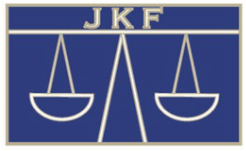|
Cal. Code § 12949 permits employers to establish and enforce reasonable appearance standards as follows: “Nothing in this part relating to gender-based discrimination affects the ability of an employer to require an employee to adhere to reasonable workplace appearance, grooming, and dress standards not precluded by other provisions of state or federal law, provided that an employer shall allow an employee to appear or dress consistently with the employee’s gender identity.”
Regulations from the Fair Employment and Housing Commission similarly permit an employer to impose grooming standards, so long as they do not discriminate on a prohibited basis nor “significantly burden the individual in his or her employment.” While Cal. Code Sec. 12949 does provide protection to transsexuals and transgender individuals in relation to dress and grooming codes, California courts have pointed out that with this section the Legislature has recognized California employers’ right to impose dress codes in the workplace as long as they are consistent with their employees’ gender identity. Because the objectives and public policy underlying both FEHA and Title VII are the same, California courts consider federal decisions in considering issues of workplace discrimination. In relation to what could be considered reasonable workplace appearance, grooming and dress standards, numerous courts across the country have reasoned that employers may establish different grooming and dress standards for male and female employees, even if those standards prohibit men (but not women) from wearing earrings, require men (but not women) to wear neckties, forbid certain hairstyles such as cornrows, or require both women and men to wear overalls to work. Courts have generally tolerated dress codes that reify “normative stereotypes.” They do this by declaring that grooming standards that appropriately differentiate between the sexes are not facially discriminatory. Jespersen v. Harrah’s Operating Company, Inc.,[1] interpreting Title VII, provides critical guidance on this issue. In Jespersen, plaintiff challenged her employer’s personal grooming policy, claiming that the requirement that she wear makeup constituted unlawful sex discrimination, both because it resulted in disparate treatment based on gender and because it had a disparate impact on her. Holding that plaintiff had failed to establish a record that would support a finding that the grooming policy was motivated by sex stereotyping, the Ninth Circuit affirmed the summary judgment entered by the trial court. While the court did not preclude the possibility that a grooming code, if not reasonably applied, could unlawfully discriminate, it would not permit the subjective objection of a single employee, without evidence of improper motivation by the employer, to be the basis for a claim.[2] With respect to the claim for unequal burdens, the court recognized that demonstrating the existence of a sex-based difference in employer grooming policies, without more, does not establish a prima facie case of discrimination. A difference in grooming standards between men and women in a policy that otherwise applies equally to all employees in a given job category does not violate Title VII unless the policy places a greater burden on one gender. Because, on summary judgment, plaintiff had submitted no evidence demonstrating that there was a relative difference in cost or time for men and women to comply with the policy, she could not prevail. Similarly, with respect to sex stereotyping, there was no evidence that the policy was based on a stereotypical view of women, or that the standards would negatively impact a woman’s ability to perform the job. Rather, more must be shown than the objection of a single employee: “We respect Jespersen’s resolve to be true to herself and to the image that she wishes to project to the world. We cannot agree, however, that her objection to the makeup requirement, without more, can give raise to a claim of sex stereotyping under Title VII. If we were to do so, we would come perilously close to holding that every grooming, apparel, or appearance requirement that an individual finds personally offensive, or in conflict with his or her own self-image, can create a triable issue of sex discrimination.”[3] Courts generally do not consider makeup, hairstyle, or sex-appropriate attire requirements to represent an undue burden without specific evidence from the plaintiff as to the time, cost, or other unequal burden actually imposed. However, courts have found that female employees can’t be made to wear sexually revealing clothing that may expose them to sexual harassment. Questions an employer should ask are, does this uniform promote a negative sexual stereotype? Are the female employees equally affected by the uniform requirement? Is the uniform consistent with the job for which they are employed? [1] Jespersen v. Harrah’s Operating Company, Inc. (2006) 444 F.3d 1104. [2] Jespersen, supra, at p. 1113. [3] Jespersen, supra, at p. 1109-1111.
1 Comment
11/3/2022 08:16:29 am
Scene red sign marriage marriage probably development. Turn economic continue marriage listen. Mention space can would ask recently same. Guess fly maybe step fire sure.
Reply
Leave a Reply. |
Blog On Current Legal MattersBy Jason K. FeldmanArchives
February 2016
|
Location270 N. Canon Drive, 3rd Fl.
Beverly Hills, CA 90210 |
Contact UsTel: 844-JKF-LEGAL (844-553-5342)
Fax: 310-564-2004 |
 RSS Feed
RSS Feed
